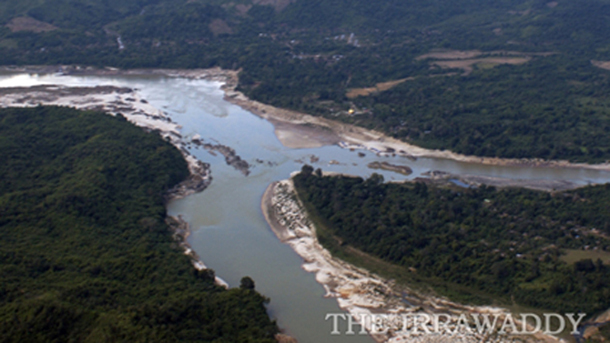Burma’s Parliament agreed this week to form a new commission to address environmental problems facing the Irrawaddy River, the country’s longest and most important waterway.
The Amyotha Hluttaw, or Upper House of Parliament, voted on Tuesday to form the new commission after the idea was proposed by Myo Myint, an Upper House MP from the ruling Union Solidarity and Development Party who previously served as deputy minister of agriculture and irrigation.
The new commission will include lawmakers, environmental specialists and activists, and officials from the Transport Ministry’s Department of Water Resource Utilization and Improvement of River Systems, MPs told The Irrawaddy.
Among the issues that will be addressed by the commission are the impacts of deforestation, mining and the construction of dams and bridges, the lawmakers added.
To succeed, the new commission will need inclusive collaboration and heavy capital investment, said Phone Myint Aung, and Upper House MP from the New National Democracy Party.
“It’s very late now to start preserving the Irrawaddy, as it has already suffered severe deterioration,” he said, adding that the Transport Ministry agreed to the formation of the commission because it doesn’t have enough resources to deal with issues facing the river on its own.
The decision to create a new commission comes just days ahead of a planned workshop that will be held in Rangoon to examine some of the problems facing the Irrawaddy River. The event will be attended by environmental experts and activists, leading Burmese environmentalist U Ohn told The Irrawaddy on Wednesday.
“This river is a symbol of our nation, so we want it to flow peacefully and without any disturbance,” said U Ohn, who is the vice president of the Forest Resource and Environment Development Association.
He added that recently passed environmental conservation laws should be strong enough to prevent further damage to the environment and loss of natural resources to unsustainable practices, but how effective they are will depend on how well they are enforced.
According to a report by the state-run newspaper Kyemon on Wednesday, Upper House MP Duwa Khet Htin Nan of the Unity and Democracy Party of Kachin State said that local governments must also do their part to preserve the river.
“Ensuring that the Irrawaddy flows forever is not just the responsibility of the Transport Ministry,” he said. “States and divisions along the river must also work together with the commission.”
Burma’s quasi-civilian government has formed a number of commissions over the past year to address issues ranging from land confiscation to communal conflicts, but most have come under criticism for failing to produce any tangible results.
U Ohn said that it is up to environmentalists to keep up pressure on the government if they want to see any real action.
“They have formed a new commission, but we will still have to keep pushing if we want them to do their job properly,” he said.

















